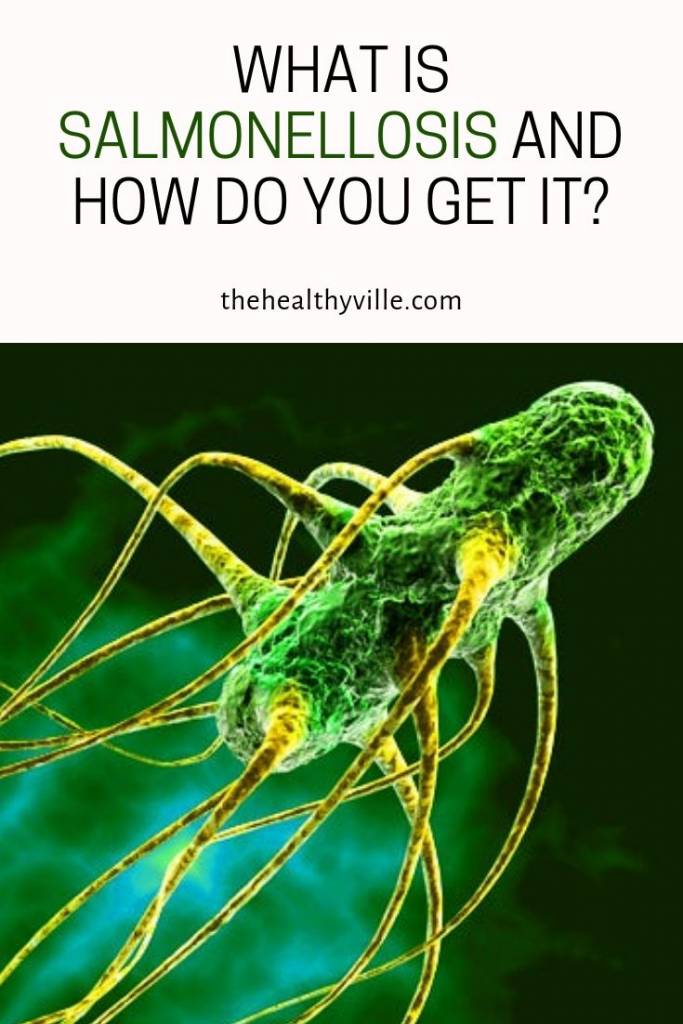Learn what is salmonellosis, how someone gets it and how to cure it if you’re the one with the symptoms.
Salmonella is a genus of bacteria that cause the disease called “salmonellosis.” This disease affects, above all, the digestive system.
These bacteria are Gram-negative, anaerobic bacilli, which does not form spores. Its natural habitat is the intestines of animals, including humans. It is also found in the feces of all these animals, so its contagion is easy.
What is salmonellosis?
Contagion and symptoms
Contagion can be caused by direct contact, or by cross contamination during food handling. It is generated when cooked or washed food with contaminated raw food is handled. It gets into the contamination of the product that is still being processed (raw) with which it will soon be consumed.
The most common form of infection is through contaminated food of animal origin. They can be chicken, eggs, beef or milk. These foods should be handled responsibly and always try to cook them before consuming them. Special attention should be paid to its raw derivatives: mayonnaise, cheese, ice cream and creams.
Be careful with your pets, because if they are contaminated and you’re in daily contact with them, you can get infected. The most likely to have it are reptiles (for example, turtles) and birds.
The first symptoms appear between 12 and 72 hours after infection. They are nonspecific: diarrhea, nausea and vomiting, intestinal pain, headache and chills. The symptoms normally last four to seven days. Generally, the disease is passed without going to the doctor, because it looks like gastroenterocolitis. However, if you continue with these symptoms after seven days, it is advisable to see a doctor.
Tips to avoid Salmonella infection
-
Maintain constant hygiene
You have to wash your hands with soap and warm water after handling food, changing a diaper or touching a pet.
You have to scrub the kitchen utensils, tables and tables after preparing each food and before preparing the next. If possible, start using paper or disposable towels to clean the table. If you prefer not to spend so much paper to take care of the environment, regularly wash the one you use in the washing machine, with hot water.
-
Do not contaminate everything
Separate poultry, fish and raw meat from other foods both in the supermarket cart and in the fridge. If you can, buy chopping boards of different colors and use one for raw vegetables and fruits, another for meats and one for cooked food.
Be especially careful when handling raw and cooked foods to consume them. Wash everything you use when moving from one to another.
-
Cook meats well and do not eat sauces made with raw eggs
When cooking you should make sure that the meats are well cooked. No matter what type of meat it is: vaccine, lamb, pork, poultry or fish. All types of cooking are valid (you can continue eating fish ceviche quietly) because some are by heat, others by the effect of acids, by steam … The important thing is that it reaches high temperatures.
Also, avoid the microwave, because it does not reach equal temperatures. The average minimum internal temperature is 63 ° C. Heat all the sauces you buy and, if you are going to eat something you cooked at noon at night, reheat it very well. Try not to consume raw egg-based sauces, because if there was a little carelessness in its preparation, you can get it.
-
Store everything in the refrigerator as soon as possible
Keep your fridge free of all bacteria, not just Salmonella. Wash the bottles you put in and the plastic dairy containers (you never know in what state the hands that touched them were).
You must keep this space tidy. Processed or processed foods on the one hand and raw foods on the other. Refrigerate processed foods before two hours have passed (one hour if the ambient temperature is higher than 32 ° C).
Be especially careful when defrosting food for processing. Do it in the microwave, in cold water or in the fridge, but never at room temperature. And if you are going to marinate some meat, leave it refrigerated.
Follow these tips to avoid Salmonella infections, and thus maintain a good state of health.
Don’t forget to SHARE what is salmonellosis with your friends and family on your social networks!

